The Iowa Caucuses Need to Go
A quadrennial reminder.
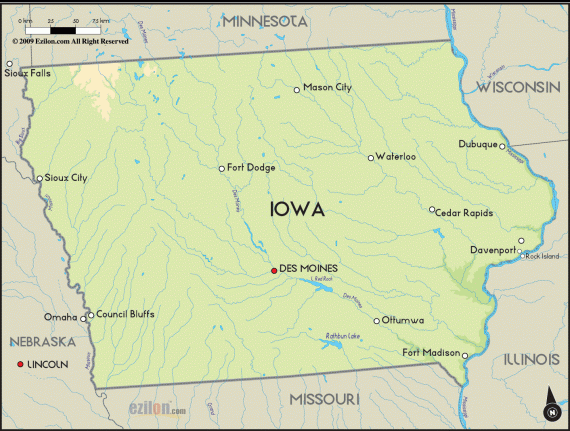
It really is a cliche to say it, but as an editorial in the NYT notes: Take the Iowa Caucuses. Please (with the appropriate, and accurate, subtitle: This is no way to pick a presidential nominee).
Iowans insist on personal attention from candidates, and this crop of contenders, some of whom have been working the state for months, understands what’s at stake in the first contest of the presidential nominating season. It is yet another reminder of how special Iowa politics are — and of why it’s past time to end the state’s outsize and unwarranted influence over the nominating process.
Hating on the Iowa caucuses has become a cliché. As the familiarrefrain goes: The state is too old, too rural and far too white to wield such clout. This is a cliché because it is true. Demographically speaking, the Iowa electorate looks about as much like the face of America as does the Senate Republican conference. Which says a lot.
Iowa’s caucuses are mind-numbingly convoluted and anti-democratic, favoring the most motivated, well-organized few over the less-obsessive majority of Iowans. More fundamentally, granting one state — any state — a perennial lock on the pole position of presidential voting fosters a sense of entitlement resulting in a quadrennial parade of pandering that borders on the absurd. Ethanol subsidies? Seriously?
Beyond the particulars of Iowa, caucuses are problematic electoral processes. Compared with primaries, they tend to be less inclusive and more complicated, resulting in much lower participation rates. In 2016, less than 16 percent of Iowa’s voting-eligible populationparticipated in its caucuses. In New Hampshire, which holds the first presidential primary, the participation rate was over 52 percent.
Indeed and indeed.
The piece goes on and notes a number of additional objections to this bizarre process. I recommend reading the whole thing.
And for those who are interested: here are the rules for the 2020 Iowa Caucus. This year includes a “virtual caucus” to go along with the traditional in-person meetings.

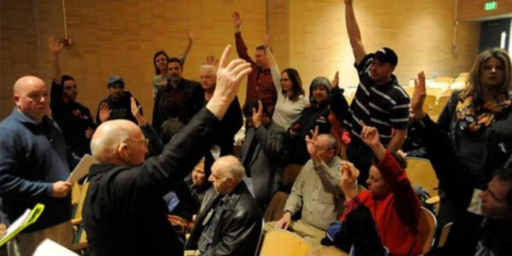
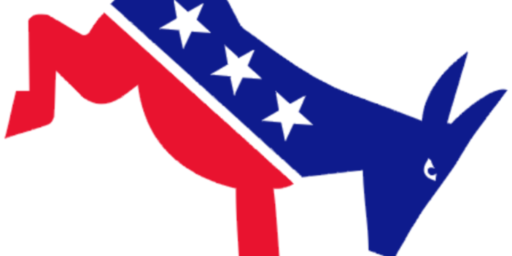
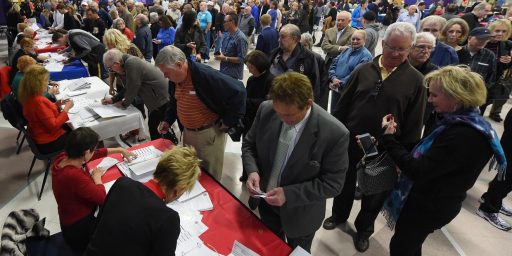
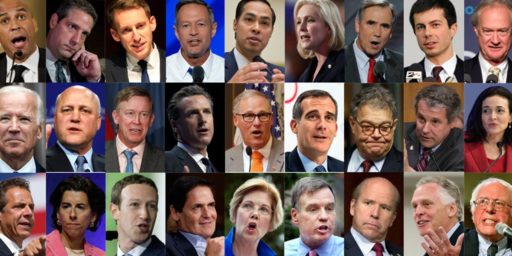
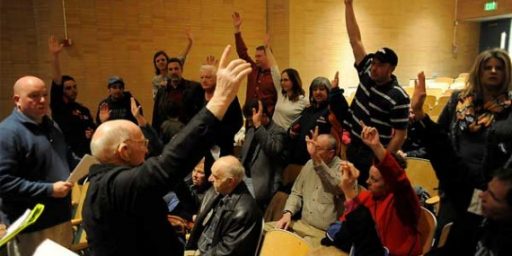
Well, if the first task of a candidate is to assemble a vote-getting machine and perfect it’s use, maybe it has some redeeming virtue as a first winnowing or opportunity to learn from an early defeat. In any other year when there are only 3 or 4 possible choices that would apply much less.
So…yeah, you’re right, of course. Just scratching my contrarian itch.
Hold all primaries, caucuses, nose-counts, whatevers, on the same day. Then let’s see who’s got the organization in place to win the country. Bet a lot of vanity campaigns would disappear overnight.
Everything you say about caucuses is true. But there are far fewer states holding them this year and the reason why sums up Bernie Sanders whole personality to perfection.
In 2016 Bernie and the Bernie Bros complained bitterly about how the evil Democratic officials stole the primary from him. In reality whenever there was a straightforward vote the voters usually preferred Hillary over Bernie. The only place where Bernie did better than Hillary? In the sparsely populated states that held caucuses. If you are going to run an insurgency then the caucuses are your best shot, for all the reasons you listed above. (And of course in the third category of voters, Superdelegates, Bernie made no effort whatsoever. No wait, that’s not fair. He made a negative effort, he actively antagonized the superdelegates, making it clear that he considered them corrupt party hacks. Superdelegates were actually drawn from loyal, long term Democratic volunteers, the people who have spent years involved at the local level. So being vilified by Bernie, who wasn’t even a Democrat, was a really stupid “strategy”.)
So what did Bernie do with all the political power he gained from his good showing? He spent it in “reforming” those caucuses because he narrowly lost the first one, Iowa, and managed to convince himself and his Bernie Bros that it was stolen. And since caucuses by their very nature make a recount impossible, he spent the rest of the campaign seething in bitter anger.
Number one on his agenda was making sure there could be a recount, but of course that means the low tech method of counting had to go. (“Jim Bob and Darlene, your candidate ain’t gonna win, come stand next to us!”, “No, next to us!”) And it wasn’t fair that people who couldn’t take the day off and drive couldn’t participate so they had to be given an absentee ballot but a ballot is a vote not a caucus so you can’t have half a primary and half a caucus so of course let’s have a Virtual Caucus! So all of a sudden all the states that used caucuses because they had small populations and everything was local and easygoing found themselves with a list of demands that meant putting on a caucus was risky and high tech and infinitely more confusing than just having a f*ing primary. In 2016 there were 14 caucus states and in 2020 there will be at most 4 and maybe as few as 2.
I can just see Bernie and his team sitting around coming up with ever more arcane plans and demands without ever consulting the local officials, often unpaid people with full time jobs, who would be tasked with this fiasco, and no doubt blamed when things inevitably went wrong. Bernie can’t talk to them – they are part of the corrupt machine and he can’t dirty himself by actually treating them like they might have something to say.
But no doubt Bernie and the Bros will be blaming the corrupt machine for getting rid of the caucuses in the first place.
Given that Iowa is basically infested with candidates for a year before the caucus, maybe they are doing a good thing for the rest of us by keeping them so contained.
Also, I would love to see a study of infectious disease rates in Iowa, to see if all that hand shaking and baby kissing is spreading colds, flus, etc.
My feeble understanding of the Iowa Caucuses is that they are a creation of the Iowa State Legislature and the Iowa political parties.
Exactly how are electors who do not live in The Hawkeye State going to change this system?
Personal note: I spent far too many winters as a nonresident climbing telephone poles to ply my trade so that I am not interested in making Iowa my home.
Exactly how are electors who do not live in The Hawkeye State going to change this system?
The national party sets rules and refuses to seat delegates from states that don’t conform at the national convention. They only had to cut one state’s delegate count in half once and everyone jumped in line on the scheduling rules.
…national party sets rules…
So you are saying that if Professor Taylor wants to eliminate the Iowa Caucases he has to join the Democratic Party and get himself appointed to whatever committee governs the candidate selection process in the State of Iowa.